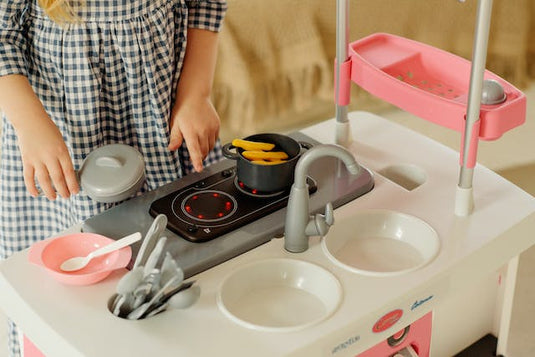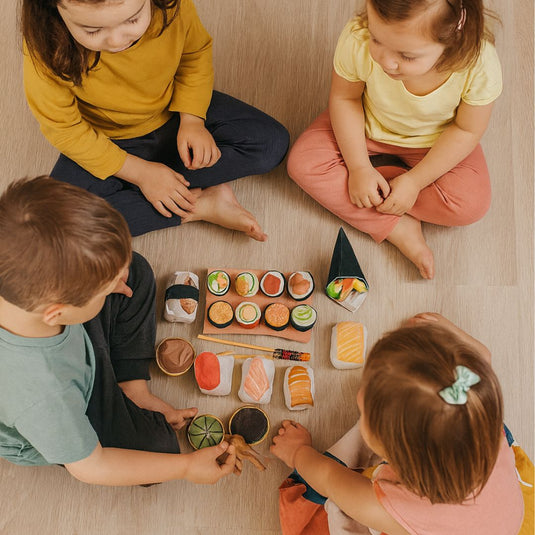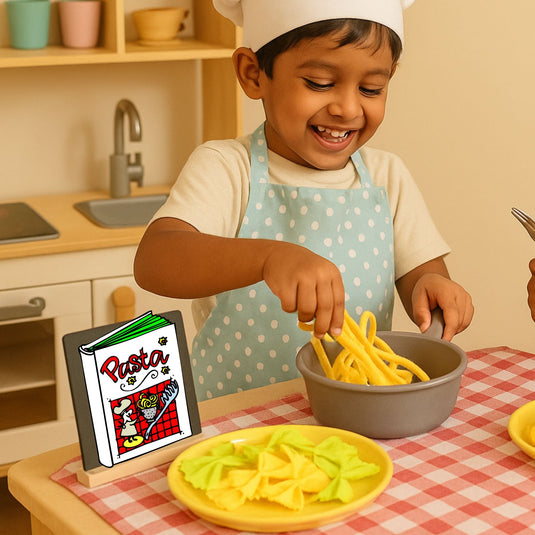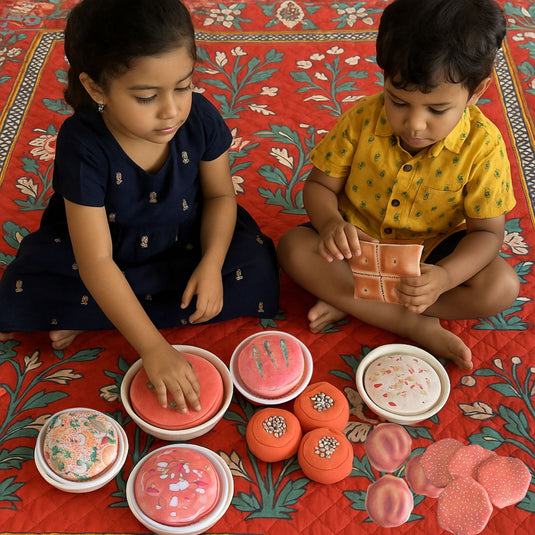Play kitchen food plays a crucial role in the early childhood development of various skills and abilities. Here are some key aspects of its contribution:
1. **Fine and Gross Motor Skills:**
- Manipulating small play food items, utensils, and pots helps develop fine motor skills. Grasping, stirring, and chopping promote hand-eye coordination and enhance dexterity. Gross motor skills are also engaged when children engage in pretend cooking activities, such as reaching for ingredients or moving around the play kitchen.
2. **Language Development:**
- Play kitchen scenarios encourage verbal communication and language development. Children engage in conversations, express preferences, and learn new vocabulary related to food, cooking, and daily routines. This imaginative play provides a rich context for language acquisition.
3. **Social and Emotional Development:**
- Playing with play kitchen food allows children to explore various social roles and emotions. They learn to share, take turns, and cooperate with others during pretend cooking sessions. Imaginary play also provides a safe space for children to express and understand emotions, helping with emotional regulation.
4. **Cognitive Skills:**
- Sorting, categorizing, and organizing play food items contribute to cognitive development. Children learn to differentiate between various food groups, colors, and shapes, laying the foundation for early math and pre-literacy skills. They also engage in pretend problem-solving, fostering critical thinking skills.
5. **Creativity and Imagination:**
- Play kitchen food sparks creativity and imagination by allowing children to invent scenarios, stories, and characters. They create their own culinary worlds, experimenting with different roles, situations, and outcomes. This imaginative play fosters creative thinking and problem-solving abilities.
6. **Numeracy Skills:**
- Through activities like counting pieces of play food, measuring ingredients, and setting the table, children develop basic numeracy skills. These experiences help them understand concepts like quantity, size, and numerical relationships in a practical context.
7. **Healthy Lifestyle Awareness:**
- Play kitchen food provides an opportunity to introduce concepts of nutrition and a balanced diet. Children learn about different food groups, the importance of fruits and vegetables, and the basics of healthy eating habits. This early awareness sets the stage for a lifelong understanding of nutrition.
8. **Role-playing and Empathy:**
- Engaging in pretend cooking and serving meals allows children to take on various roles, fostering empathy and understanding. They learn about the needs and preferences of others, enhancing their social skills and ability to see situations from different perspectives.
9. **Sensory Exploration:**
- Exploring play food items involves multiple senses, contributing to sensory development. Children experience different textures, colors, and shapes, enhancing their sensory awareness and understanding of the world around them.
10. **Parental Bonding:**
- Play kitchen activities often involve parent-child interaction. Cooking together in a play kitchen creates opportunities for bonding, communication, and shared experiences, reinforcing positive relationships.
In summary, play kitchen food is a versatile tool that addresses various aspects of early childhood development, encompassing physical, cognitive, social, emotional, and sensory domains. Through imaginative play, children acquire a wide range of skills essential for their overall growth and well-being.
The Role of Play Kitchen Food in Early Childhood Development




